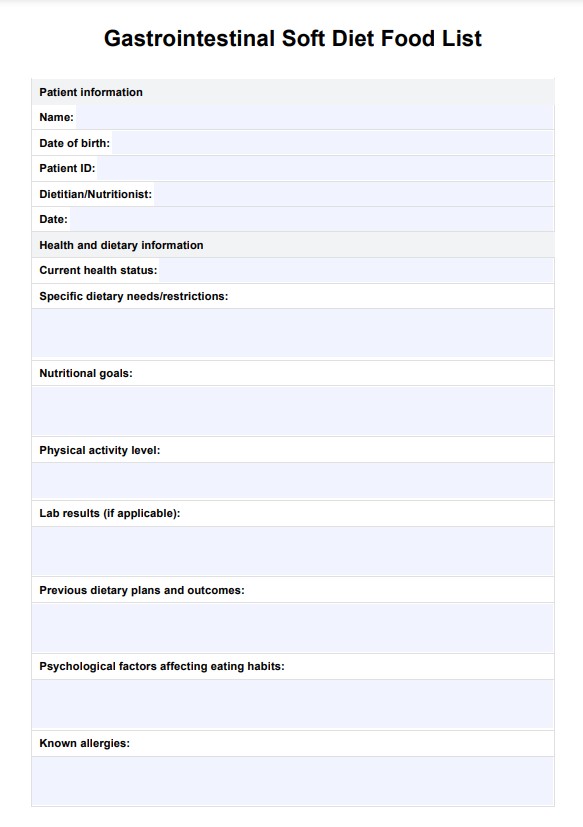A gastrointestinal soft diet includes soft foods that are easy to digest, such as soft cooked vegetables, canned fruit, and cooked grains. It is often recommended for individuals recovering from gastrointestinal surgery or managing digestive conditions like Crohn's disease, gastritis, or ulcers, to minimize discomfort and promote healing.

Gastrointestinal Soft Diet Food List
Discover how the gastrointestinal soft diet helps manage digestive issues with soft, gentle foods designed for optimal healing.
Gastrointestinal Soft Diet Food List Template
Commonly asked questions
Foods to avoid on a soft food diet include raw fruits and vegetables, seeds snack foods, chunky peanut butter, fried foods, and spicy foods. These can irritate the digestive tract and cause symptoms like bloating or abdominal pain.
Yes, a soft food diet can be rich in nutritious foods like cottage cheese, smooth peanut butter, tuna salad, and well-cooked broccoli florets. The goal is to provide balanced nutrition while avoiding foods that are hard to digest or cause irritation.
EHR and practice management software
Get started for free
*No credit card required
Free
$0/usd
Unlimited clients
Telehealth
1GB of storage
Client portal text
Automated billing and online payments











